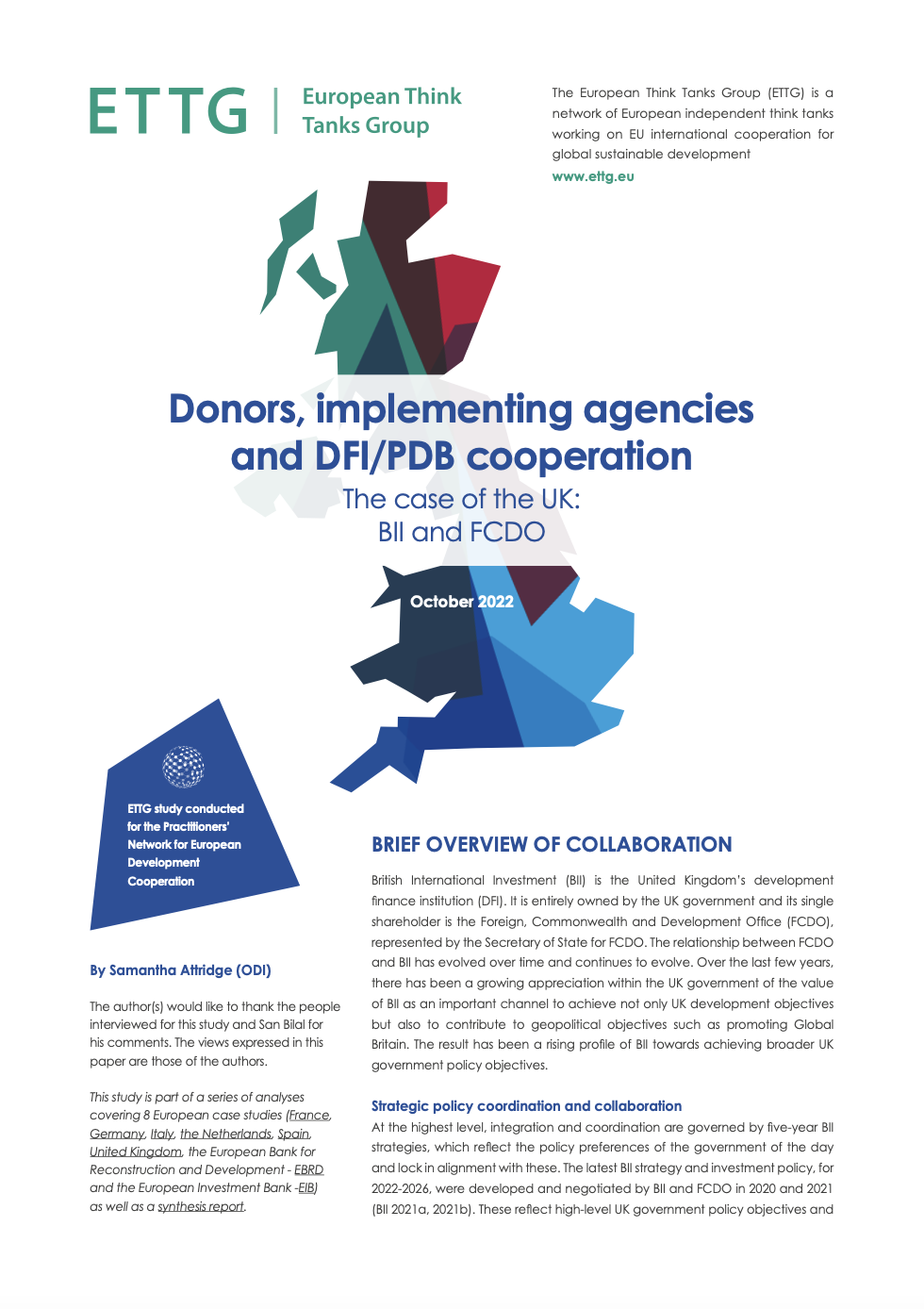
British International Investment (BII) is the United Kingdom’s development finance institution (DFI). It is entirely owned by the UK government and its single shareholder is the Foreign, Commonwealth and Development Office (FCDO), represented by the Secretary of State for FCDO. The relationship between FCDO and BII has evolved over time and continues to evolve. Over the last few years, there has been a growing appreciation within the UK government of the value of BII as an important channel to achieve not only UK development objectives but also to contribute to geopolitical objectives such as promoting Global Britain. The result has been a rising profile of BII towards achieving broader UK government policy objectives.
Strategic policy coordination and collaboration
At the highest level, integration and coordination are governed by five-year BII strategies, which reflect the policy preferences of the government of the day and lock in alignment with these. The latest BII strategy and investment policy, for 2022-2026, were developed and negotiated by BII and FCDO in 2020 and 2021 (BII 2021a, 2021b). These reflect high-level UK government policy objectives and priorities in relation to geography, sector and cross-cutting issues, such as tacking climate change and gender inequality. The strategy sets the broad parameters within which BII operates on an arm’s length basis. Quarterly shareholder meetings allow for general shareholder oversight to ensure that BII is on track to deliver the priorities of the UK government as set out in the strategy and investment policy. The FCDO BII shareholding team meets on a weekly basis with BII; it manages the UK government relationship with BII and plays a coordinating role across FCDO and the UK government more broadly.
Read the UK case study here.
Author: Samantha Attridge (ODI)
The author would like to thank the people interviewed for this study and San Bilal for his comments.
ETTG study conducted for the Practitioners’ Network for European Development Cooperation.
This study is part of a series of analyses covering 8 European case studies (Germany, France, the Netherlands, United Kingdom, Spain, Italy, the European Investment Bank -EIB and the European Bank for Reconstruction Development – EBRD) as well as a synthesis report.
Presentation of the analysis report here.
Photo by Max van den Oetelaar on Unsplash.
The views are those of the authors and not necessarily those of ETTG.




